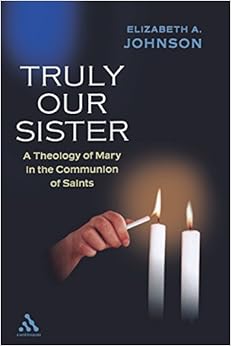An Advent song for our age

When Elizabeth heard Mary’s greeting, the infant leaped in her womb, and Elizabeth, filled with the Holy Spirit, cried out in a loud voice and said, “Most blessed are you among women, and blessed is the fruit of your womb. And how does this happen to me, that the mother of my Lord should come to me, for at the moment the sound of your greeting reached my ears, the infant in my womb leaped for joy.” –Luke 1:41-44
Gaudete! This is the week of joyful anticipation!!
Just as Jesus and John leaped for joy in the wombs of their holy mothers, we rejoice and leap for joy as we wait for the great things to come, the fulfillment of God’s promises!
Yes, we are aware that we wait in darkness. We are overwhelmed and pained by the intensity of oppression suffered throughout the world, near and far. Children sleep on streets, many people lack adequate shelter and water, bombs are being dropped, refugees are fleeing. Poverty, injustice, and violence are real and serious threats upon the dignity of humanity.
Still, with hope and joy we lovingly labor for a world where God’s reign is known, wherein justice is triumphant.
No matter our circumstances, how can our voices contribute toward the coming fullness of God’s reign? How can we join our voices together and sing a song of reversal that is in harmony with the strength and hope heard in Mary’s song in Luke 1:46-55?
And Mary said:
“My soul proclaims the greatness of the Lord;
my spirit rejoices in God my savior.
For he has looked upon his handmaid’s lowliness;
behold, from now on will all ages call me blessed.
The Mighty One has done great things for me,
and holy is his name.
His mercy is from age to age
to those who fear him.
He has shown might with his arm,
dispersed the arrogant of mind and heart.
He has thrown down the rulers from their thrones
but lifted up the lowly.
The hungry he has filled with good things;
the rich he has sent away empty.
He has helped Israel his servant,
remembering his mercy,
according to his promise to our fathers,
to Abraham and to his descendants forever.”
I recently studied Elizabeth Johnson’s commentary on the Magnificat (Luke 1:46-55) within her masterful work Truly Our Sister: A Theology of Mary in the Communion of Saints (Continuum, 2003) as part of my graduate studies. This writing encouraged me to remain faithful and hopeful in the midst of the struggle for justice. I was provided a solid footing in information about the requirements for justice.

For example, even though Mary’s song is the longest speech from any woman in the entire New Testament, it is one of several hymns sung by Jewish women; it is parallel in content and structure to what was sung by several prophetesses in the Old Testament. Like their songs, Mary’s song also praises God’s creation of a liberating revolution.[1]
With scholarship and reverence, Johnson details how Mary’s particular circumstances established her as dangerous for anyone who does not embrace God’s reign. God chose Mary, a poor woman, to be the partner in our salvation and she praises God from the depth of her relationship with God; God has preference for those who are economically and spiritually poor.[2]
Mary was an oppressed woman and her song paints a picture of justice; throughout salvation history we understand that God defines justice as reversal. Mary’s voice foreshadows Jesus’ message in the Gospels. Fittingly then, Mary’s song is a “revolutionary song of salvation whose concrete social, economic, and political dimensions cannot be blunted.”[3]
Praise and justice come together; by the life-giving body of the pregnant Mary we know a role model for solidarity with the oppressed. In her message, we can envision a world where all the hungry are fed and all power structures turn upside down.[4]
Mary’s song is a song for everyone, and it is very much music to the ears of people who live in poverty.[5] Yet, Johnson admits, “This message will not appeal to those who are satisfied with the way things are.” She advises that those who are prosperous strengthen their solidarity.[6] I was invigorated for my task of informing those of us who comfortably enjoy privileges about the needs of a hungry humanity, of calling all of us to more mindfulness.
Ultimately, Johnson’s commentary on the Magnificat provides me with a hopeful lens through which I can view the injustices of today. It taught me how to joyfully sing songs of response that glorify and please God, through both word and deed.
By Mary’s partnership we experience the dawning of the Messianic Age. Her song is also a daily prayer that can inform our every-day work of helping God’s justice reign. In the words of Dietrich Bonhoeffer, “This song has none of the sweet, nostalgic, or even playful tones of our Christmas carols. It is instead a hard, strong, inexorable song about collapsing thrones and humbled lords of this world, about the power of God and the powerless of humankind.”[7]
Indeed, as Johnson so clearly articulated, in Mary’s universal song we hear the ultimate Advent hymn—a song of hope to reverse the patterns of suffering prevalent in the world today.
As we leap in joy and wait in hopeful anticipation for the coming of God’s Kingdom fully known, let us join Mary and do the work of establishing God’s justice while this song rings in our hearts!
AMEN!
[1] Elizabeth Johnson, Truly Our Sister (New York: Continuum, 2003), 263-264.
[2] Johnson, 264-265.
[3] Johnson, 269.
[4] Johnson, 271.
[5] Johnson, 269.
[6] Johnson, 270.
[7] Johnson, 267.




